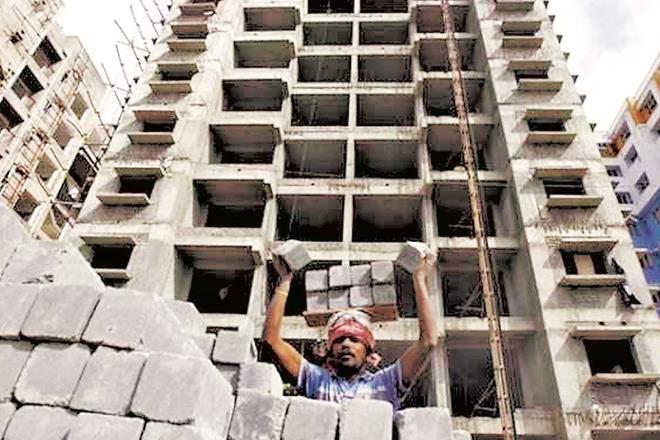

GST Council, headed by Finance Minister Nirmala Sitharaman, held its 37th meeting in Goa on 20th September 2019. With India’s Gross Domestic Product (GDP) touching a six-year low of 5 per cent, and various sectors facing a severe downturn, the government was under huge pressure to take new measures to boost consumption and demand by reducing the GST. Despite the real estate is an important area, no reliefs were given to this sector in the recent GST council meeting. Real estate is facing slowdown at present, any reliefs from the government would have played a vital role in changing the condition.
The highlight of the GST regime for the real estate sector was the easy availability of Input Tax Credits paid on inputs, capital goods, and input services. Under the erstwhile regime, developers would be liable to pay a multitude of taxes such as VAT, Central Excise, Entry Tax, LBT, Octroi, Service Tax, etc., the credits of which were not freely available against the output tax liability. However, the GST regime provided for ITC eligibility on construction and other services procured, thereby eliminating the inefficiency ushered in by the cascading effect of taxes.
In an attempt to revive housing sales and address complaints received from homebuyers that some developers were not passing on the benefit of input tax credit, the Goods and Services Tax (GST) Council on February 24 had slashed tax rate on under-construction residential properties, making the effective tax rate 5 percent for the normal category and 1 percent for the affordable housing category, however, input tax credit was restricted in both the cases.
At present, the real estate sector is facing various issues and the government needs to introduce a comprehensive package of fiscal and non-fiscal reforms to improve its condition. Issues like liquidity crunch, double taxation, high taxation rates, etc. are some of the reasons suffocating the industry as a whole.
Liquidity risk is increasing for Indian-based real-estate developers as banking and non-banking institutions are shying away from lending to the sector. The real estate sector, which is reeling under the problem of a liquidity crisis, was hopeful that the new government would help the sector with better reforms. Easy loans would have helped in the rehabilitation of the whole industry, but no concrete step has been taken yet.
Developers and real estate consultants had urged the government to bring in reforms and do away with the problem of double taxation. Rationalizing the taxes by subsuming stamp duty under GST would grant a big relief to the home buyers. Entertainment tax, Octroi, Excise, Sales tax have all been subsumed with GST, so there is no reason for stamp duty to be singled out.
Buyers of commercial properties should be allowed to claim input credit as it is in line with the principle of GST. Ownership of real estate property forms one of the biggest capital expense in any business sector, whether it is an office for the service industry or factory/warehouse for a manufacturing plant.
Thereby non-availability of the tax credit on the same would result in cascading of taxes, which will not be restricted only to the real estate sector but the spillover effect is also felt in the manufacturing and services sector.
The real estate industry was hopeful of new changes but no decisions have been taken on the same by the GST council. Real estate majorly contributes to the overall growth of the economy as buying a home is one of the basic needs of the people but the common man is unable to invest due to double taxation and high interest on home loans by various banking and non- banking financial institutions. In order to bring reforms in the real estate sector, the government needs to evaluate the issues affecting the real estate sector in India and accordingly bring some reforms to improve this slowdown condition faced by the real estate industry.
We look forward to better policy reforms, which in turn will generate a higher GDP for the country. This will have a positive impact on the real estate sector and also on the overall growth and development of the economy. We are hopeful that the government will redress and resolve the prolonged issue of liquidity crisis that the sector is facing currently and will also take measures to reduce the double taxation burden on the ultimate consumer.
[“source=financialexpress”]




